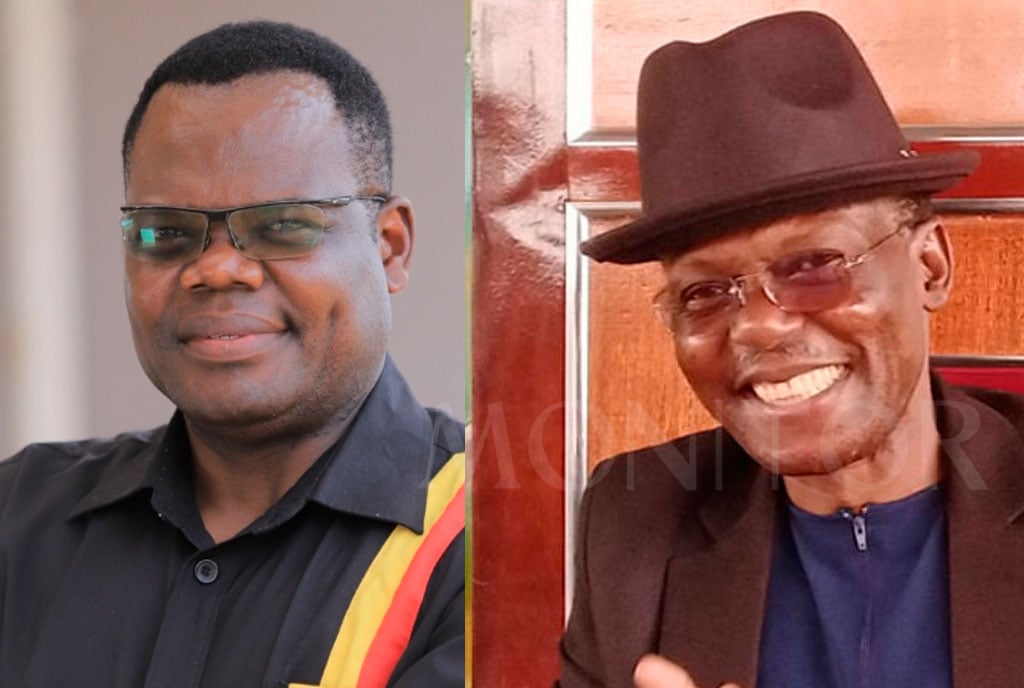Kyambogo to NCHE: We will not close study centres

Students going for lectures at Kyambogo University in March 2024. PHOTO/FILE
What you need to know:
- Prof Katunguka explained that the University Council, in its 72nd sitting in June 2017, resolved to operate learning centres in Bushenyi and Soroti to provide quality, accessible education.
Kyambogo University has rejected a directive from the National Council for Higher Education (NCHE) to close its five study centres for primary teachers and other students across the country.
The NCHE had ordered the closure of centres in Soroti, Bushenyi, Masindi (formerly Kamurasi Primary Teachers College), Butebo (formerly Kabwangasi Primary Teachers College), and Bukedea (formerly Bukedea Primary Teachers College).
In a July 2 letter, the NCHE Executive Director, Prof Mary Okwakol, stated: “NCHE has established that Kyambogo University has continued to operate two illegal learning centres in Bushenyi and Soroti, along with three other unapproved campuses.
The purpose of this letter is to request the immediate closure of these illegal centres and any other unapproved campuses.” The Kyambogo University’s Vice Chancellor, Prof Eli Katunguka, disagreed with the directive, citing the legality of the centres.
“These centres are not going to close. They will continue to operate and offer their programmes. Our students, parents, and stakeholders should know that these centres are legal,” Prof Katunguka stated.
He emphasised that the university’s operations at these centres are in line with statutory instrument No. 37 of 2003 of the Universities and Other Tertiary Institutions Act, which mandates the university to conduct in-service and pre-service training.
Prof Katunguka explained that the University Council, in its 72nd sitting in June 2017, resolved to operate learning centres in Bushenyi and Soroti to provide quality, accessible education.
Additionally, the university continued the distance education programmes introduced by the former Institute of Teacher Education Kyambogo in 2000 to meet the Ministry of Education and Sports’ requirement for Grade III teachers to upgrade to Grade V.
He further clarified that the Ministry of Education and Sports had requested the university to continue its responsibilities regarding teacher education and training in these centres until the Uganda National Institute of Teacher Education and National Teacher Council are established and operational.
The last cohort of students in these Primary Teachers’ Colleges was admitted in 2023 and is expected to graduate in 2026.
Prof Katunguka added that the programs at these centres are accredited by the NCHE and are administered under the respective schools and faculties, coordinated by the Institute of Distance Learning, e-Learning, and Learning Centres. He reiterated that these centres are legal and will continue operating.

Prof Eli Katunguka
Prof Okwakol did not respond to repeated calls regarding Kyambogo University’s defiance.
In her July 2 letter, she referenced Section 25 of the UOTIA, which stipulates that public universities must adhere to the location specified in their establishing instrument but may establish additional branches or campuses with NCHE approval.
She also noted that NCHE does not recognise qualifications from unapproved centers and campuses.
Kyambogo University is not the only institution operating study centres; other universities, including Makerere University, also run various centres across the country. At the same event, Kyambogo University requested government approval to hire more staff due to severe understaffing. Prof Katunguka revealed that the university’s total teaching staff establishment should be 1,281.
Currently, the university has only 404 permanent staff, operating at just 31 percent of the required level. This shortfall has led the university to hire approximately 500 part-time staff, costing the institution Shs16 billion annually. The university is also significantly understaffed in terms of professors, with only five out of the required 63, impacting the supervision of graduate and PhD students.
Prof Katunguka urged the government to allow the recruitment of additional staff to reach at least 50 percent of the required staffing levels.
Admission
Kyambogo University has admitted 17,000 students for the 2024/2025 academic year, which commenced this week. Of the 32,167 applicants, only 17,333 were admitted due to limited capacity.
Prof Katunguka attributed the high number of applications to the university’s affordable tuition fees and conducive learning environment. He emphasised the institution’s commitment to providing quality education at a reasonable cost.
As new students undergo orientation, Prof Katunguka cautioned them to be vigilant against conmen targeting Freshers.
He advised students to be cautious when dealing with unfamiliar individuals and to report any suspicious activities to university authorities.
He also encouraged students to utilise university resources and engage in both academic and extracurricular activities for a well-rounded university experience.
“Please be mindful of con people. Don’t give money to strangers. While here, enjoy yourself responsibly and avoid destructive choices because life has just begun,” Prof Katunguka said.




